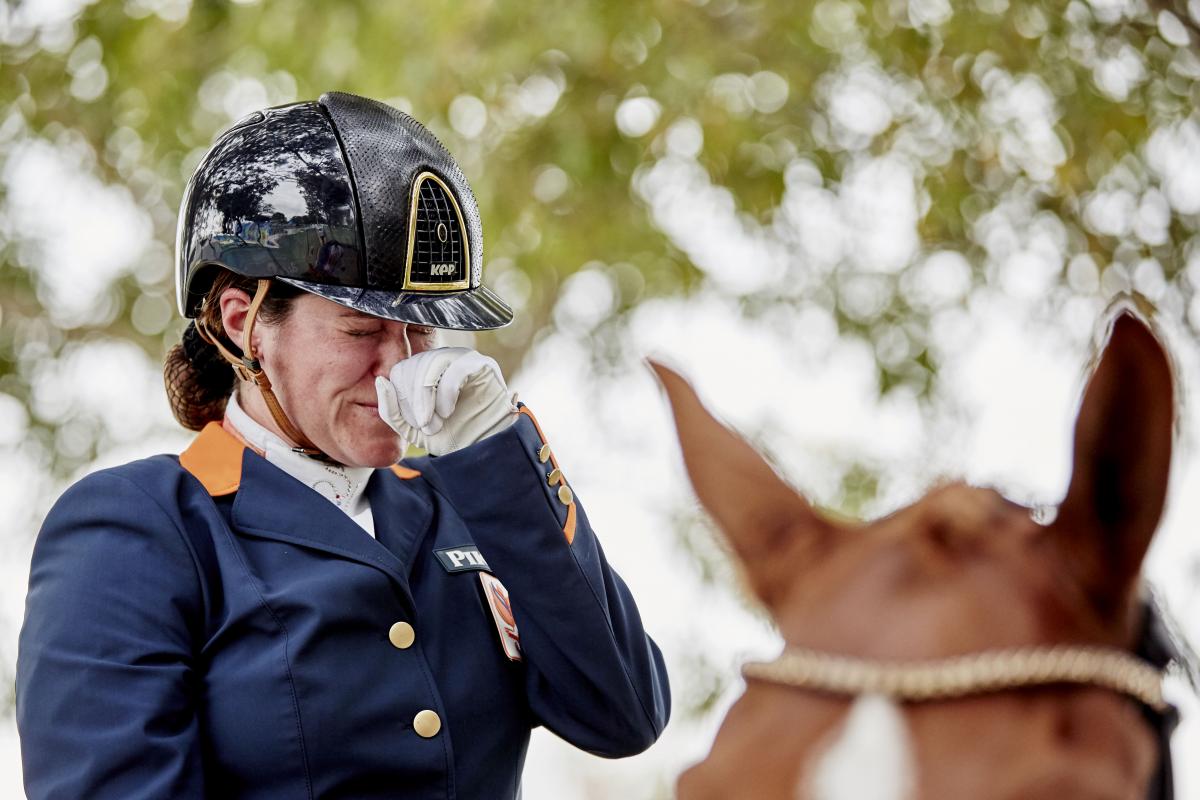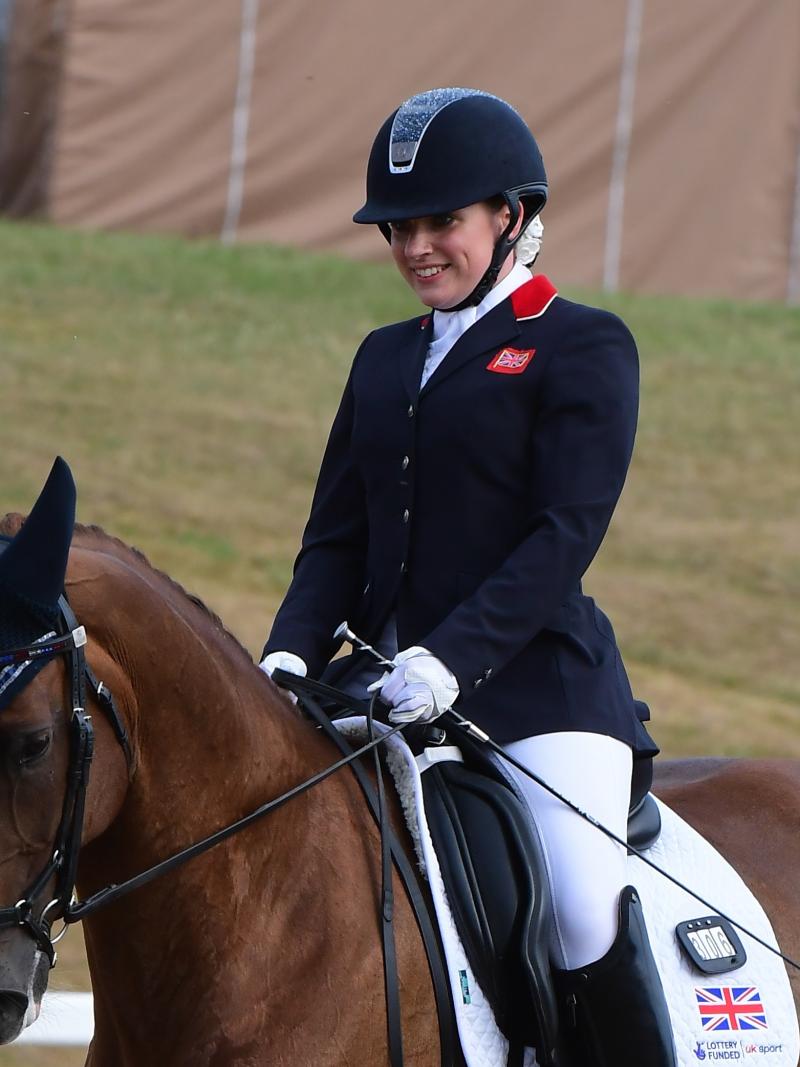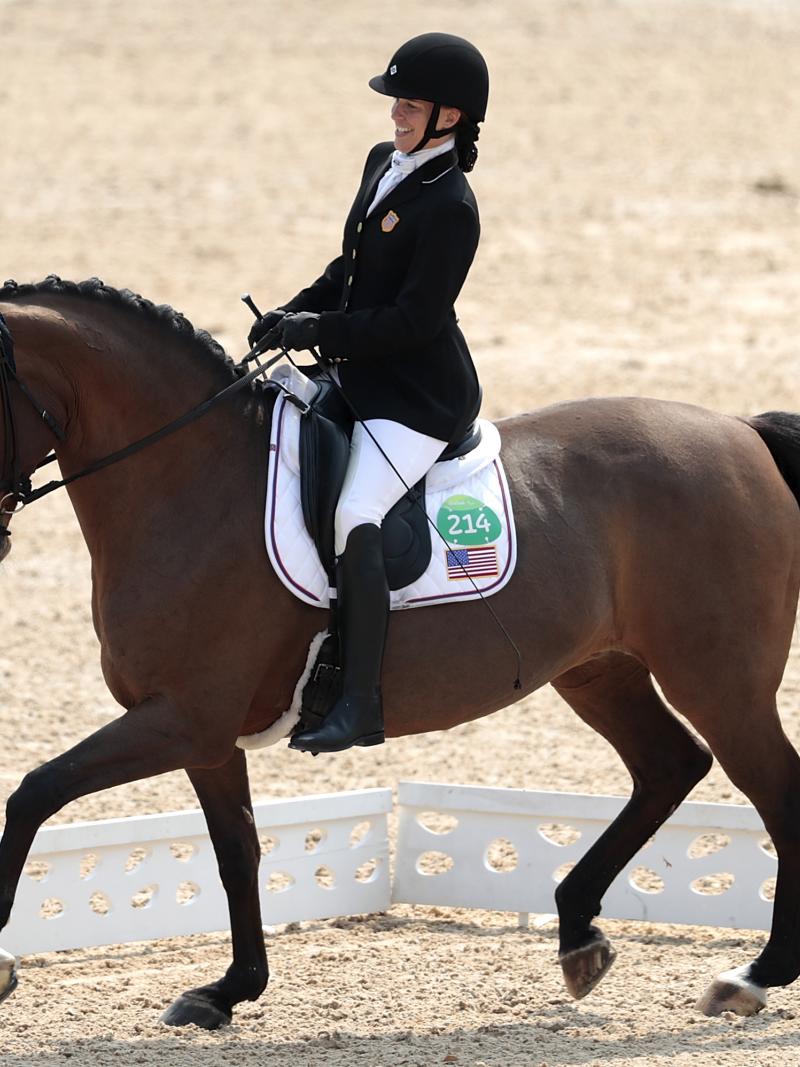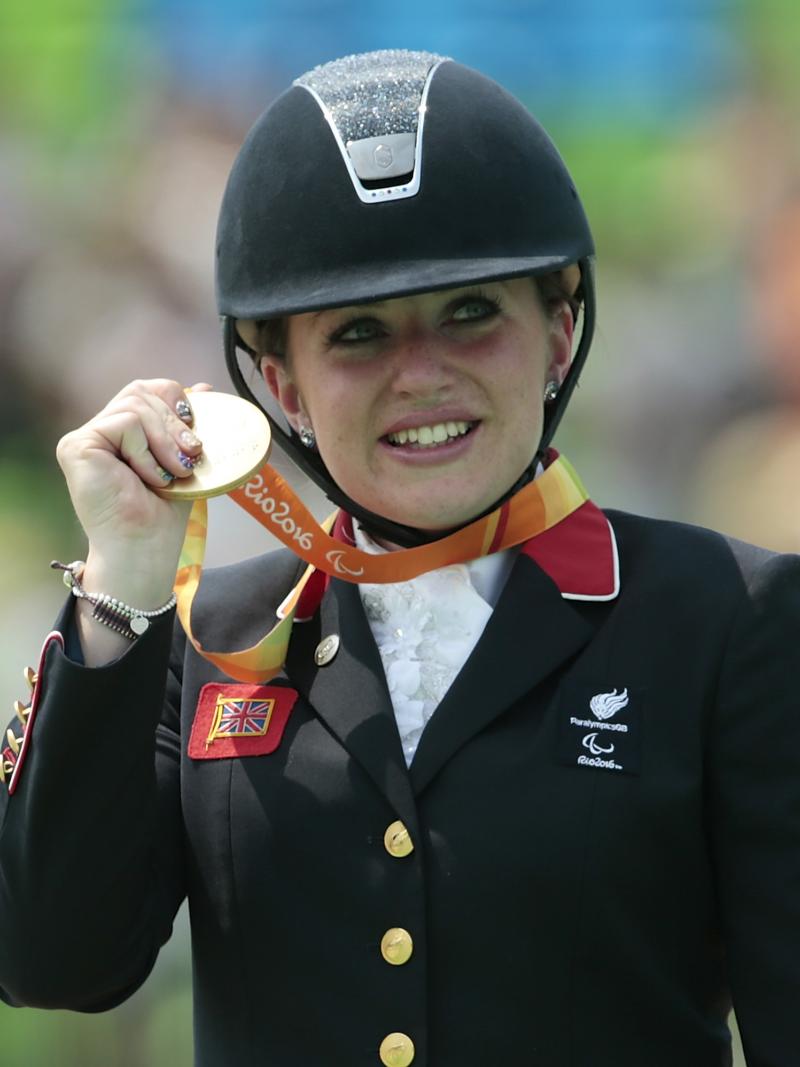Tryon 2018: The day of the dancing horses
How Para dressage captures equestrian fans’ imagination 03 Aug 2018
Sanne Voets is the Paralympic freestyle grade IV champion
For many fans of Para equestrian, the dressage freestyle day is the one not to be missed. For the riders too, it is more often than not their favourite day of the competition. It is in the freestyle that horses and riders are at their most creative as they perform their own routines devised by themselves, to music. It’s the day the horses dance.
The Netherlands’ current Paralympic, world and European freestyle champion, Sanne Voets, sums up the appeal saying: “Music is emotion and sport is emotion. So when you put the two together you get more than their sum. It’s when two and two make five.”
Building the routine
Voets clinched the grade III (now grade IV) Paralympic title in Rio two years ago with a routine she had developed to Dutch dance music DJ and producer Armin Van Buuren’s hit song ‘This is what it feels like’.
She’ll be dancing to the same tune at this summer’s World Equestrian Games (WEG) in Tryon, USA, in September, and is already working on a new routine for the Tokyo 2020 Paralympic Games. So how does she create a five minute routine? “The first stage,” she explains, “is to think about the compulsory movements you have to complete – in my grade there are 14 – and then start to create a floorplan. I literally draw out the movements and plot how I can link them together.
“I start with the compulsory movements as those are the ones that score the highest technical marks from the judges, so I design a routine to show them in the best way.
“You then have to make your routine original, difficult and easy to follow. It takes about three months to get to the final floor plan, during which time you’re planning it out and teaching yourself and the horse the routine, trying out individual moves and so on.”
And then, alongside those set movements, Voets adds, a rider will add their own favourite movements that they enjoy and show off their skills. “Freestyle is for yourself as well as the judges and audience,” she says. “It’s an entertainment – a party for you and them.”
The choice of music is the next crucial step. “It makes sure the interpretation of the horse’s movements is displayed, with hooves beating in time to the music, for example. And good music creates an emotional reaction too. A good freestyle gives you shivers.”
Hitting the right note
Many dressage stars from both the Olympic and Paralympic arenas use professional music producers for their routines. One of the biggest names in that field is Tom Hunt, who produced Natasha Baker’s Rio 2016 gold medal routine’s music, and that for Sophie Wells’ silver too. For WEG he is working with Singapore’s Laurentia Tan and the USA’s Kate Shoemaker too.
The music graduate and film composer says: “I first talk to the rider to get a feel for the atmosphere they want to create. I look at the horse as well, and then start to pull together some original pieces and short music examples we can start to play with.
“I create a tempo track for the speed of the programme and then the rider and I work together to create the style that fits. There’s a lot of trial and error until we get to the right place.”
Riders sometimes ask producers to use certain songs, as Voets did for Rio 2016. “When that happens,” says Hunt, “we have to create instrumental tracks and theme them in a certain style. Film soundtracks are also popular.
“I always have to be conscious of the grade of rider I’m working with as well, especially if riders are doing walk tests only. In those I have to make sure the music doesn’t pick up too much.”
Voets underlines the crucial role the music plays and the challenge producers like Hunt face, saying: “Your music should not only fit your horse and the choreography, but should also make you, the rider, feel good. It should give you energy and help you perform at your very best.”
The freestyle competition at this year’s WEG takes place on Saturday 22 September, the culmination of five days of competition starting on Tuesday 18 September.







